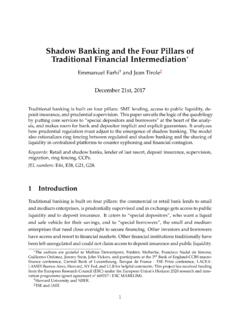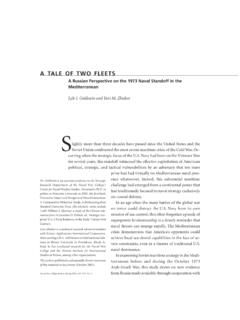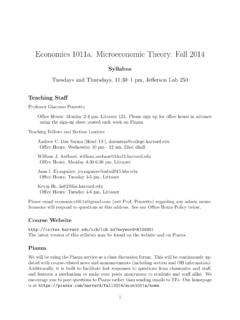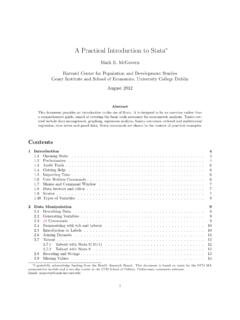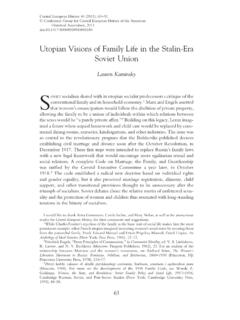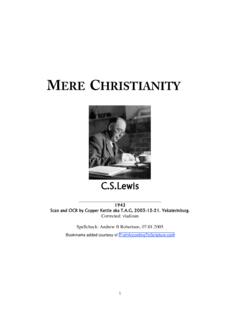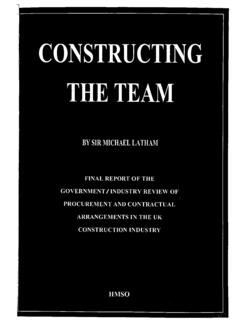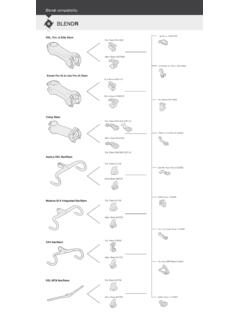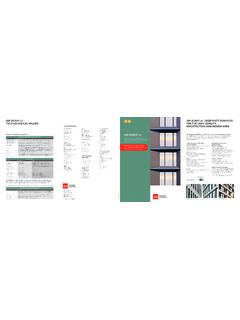Transcription of Bias and Judging - Harvard University
1 bias and Judging . Allison P. Harris Maya Sen . August 30, 2018. Abstract How do we know whether judges of di erent backgrounds are biased ? We review the substantial political science literature on judicial decision-making, paying close attention to how judges' demographics and ideology can influence or structure their decision-making. As the research shows, characteristics such as race, ethnicity, and gender can sometimes predict judicial decision-making in limited kinds of cases; how- ever, the literature also suggests that these are by far less important in shaping or predicting outcomes than is ideology (or partisanship), which in turn correlates closely with gender, race, and ethnicity. This leads us to conclude that assuming judges of di erent backgrounds are biased because they rule di erently is questionable: given that the application of the law rarely provides a correct answer, it is no surprise that judges' decisions vary according to their personal backgrounds and, more importantly, according to their ideology.
2 Word Count: 8,880 (not including abstract or references).. Accepted for publication, Annual Review of Political Science. We are grateful to Laura Moyer for helpful comments.. Assistant Professor, Department of Political Science, Pennsylvania State University https://www.. Associate Professor, John F. Kennedy School of Government, Harvard University http://scholar. 1. 1 Introduction Before she was nominated to the Supreme Court, Sonia Sotomayor famously wrote that she would hope that a wise Latina woman with the richness of her experiences would more often than not reach a better conclusion than a white male who hasn't lived that life (Sotomayor, 2002, p. 92). Years later, herself a nominee to the Supreme Court, Sotomayor tried fervently to distance herself from her earlier comments. As she announced in her 2009 confirmation hearings, I do not believe that any racial, ethnic or gender group has an advantage in sound Judging .
3 I do believe that every person has an equal opportunity to be a good and wise judge, regardless of their background or life experiences . (Nomination of Sonia Sotomayor, 2009, p. 66). Even so, conservative criticisms of bias have dogged Sotomayor. Senator Je Sessions, in announcing his vote against her confirmation, complained that she was the kind of judge who believes it is acceptable for a judge to allow their personal background, gender, prejudices, or sympathies to sway their decision in favor of, or against, parties before the court and that such a viewpoint was automatically disqualifying (Nomination of Sonia Sotomayor, 2009, p. 7). In this review article, we assess what recent research in political science, economics, and empirical legal studies tells us about Sotomayor's statement as well as those of her detractors.
4 Do judges regardless of their background or life experiences usually treat people similarly? What would it mean for judges of di erent backgrounds to be biased ? These are important questions. Normatively speaking, we might wish for judges' decision- making to be una ected by race, gender, religion, or political party either their own or of the parties before them. However, as we discuss throughout this piece, such a viewpoint is squarely at odds with long-standing empirical observations about how judges actually decide cases. Scholars going as far back as Jerome Frank have observed that the law is far from clear, exact, and certain but instead is now, and will continue to be largely vague and variable (Frank, 1930). With something so vague and variable and lacking in clear right answers, would it be reasonable to expect judges of di erent backgrounds to reach 1.
5 Identical legal conclusions? If not, would that be evidence of bias ?1. Judicial politics research has much to say on these questions. The key takeaway is that judicial decision-making is highly variable indeed, research shows that judges' personal backgrounds, professional experiences, life experiences, and partisan and ideological loy- alties might impact their decision-making, just as Justice Sotomayor originally suggested. The research is also clear that, among these characteristics, ideology and partisanship have the strongest relationship with judicial decision-making. Multiple studies have documented that judges appointed by Republicans decide cases di erently than do judges appointed by Democrats, even after accounting for personal and professional di erences (including gender and race).
6 Other studies have shown that female and non-white judges, as well as judges from other backgrounds, decide cases di erently, but these di erences are more mod- est and tend to be detected primarily where the cases involved have a significant gendered or racial connotation. Taken holistically, the literature suggests that di erently situated judges might decide cases di erently, but that any di erences associated with demograph- ics are actually fairly issue-specific and much less pronounced than di erences rooted in ideology or partisanship. However, as we argue in this article, the fact that studies have found such di erences does not necessarily make judges biased. Like other political elites, judges have policy preferences, shaped by an amalgam of factors that include their race, gender, and, most importantly, ideology or partisanship (which themselves could be influenced by race or gender).
7 In other words, judges are nuanced decision-makers who bring their preferences and experiences to bear on what are sometimes di cult questions lacking in objectively correct answers (as suggested by Frank, 1930, and many others). Given this, we think a better way to consider claims of bias and Judging lies in assessing the composition of the judiciary as a whole. The research suggests more women on the courts would lead 1. This article focuses on bias through the frame of judges' backgrounds, including race, gender, ide- ology, and personal experiences. For an excellent overview on empirical work on other possible kinds of bias including the use of heuristics and other non-judicial factors see Rachlinski and Wistrich (2017). 2. to more decisions favorable to women, more people of color on the courts would lead to more decisions favorable to people of color, and more Republican judges would lead to more decisions less favorable to criminal defendants.
8 Focusing on the composition of the judiciary as a whole and how that relates to the overall tenor of rulings, rather than on the relationship between individual judges' characteristics and decisions, allows scholars to consider the implications of population shifts in diversity including partisan, gender, and racial on the bench. This article proceeds as follows. We begin by discussing the extensive literature docu- menting the robust relationship between ideology (and partisanship) and judicial decision- making. Next, we examine the somewhat smaller set of studies looking at the relation- ship between personal characteristics including race, ethnicity, and gender and decision- making. These studies have found smaller di erences, after controlling for ideology, and any di erences are mostly limited to specific contexts where race or gender are particularly salient.
9 Next, we consider what these two lines of research mean for the question of bias . in the judiciary. Our conclusion is that the courts are an ideological body whose rulings represent the preferences of the men and women who serve on them. This means that when questioning bias , we must consider very broadly the composition of the courts not just as they are, but as we wish them to be. We conclude with thoughts for future research. 2 Relationship Between Ideology and Judicial Decision-Making We start by considering the large and fairly conclusive literature documenting the important relationship between ideology (or partisanship) and judicial decision-making. This literature is long-standing and dates to early law-school based debates about the nature and purpose of judicial decision-making; subsequent research within political science has mostly taken the strong influence of ideology on decision-making as a given, looking instead for ways to measure ideology accurately.
10 Importantly, most of the literature in this area does not frame the importance of ideology in decision-making as bias per se; rather, 3. judges here are maximizing over preferences in much the same way that other political decision-makers do and subject to certain constraints. Legal Formalism and the Legal Realists. Early American legal scholars were largely of the view that the law was a tool applied to a set of facts; the neutral application of the law would thus result in a clear answer. This view of Legal Formalism is best represented by Harvard Law School Dean Christopher Columbus Langdell. As described by Grey (1983, p. 5), Langell and others like him were of the view that law is a science. Langdell believed that through scientific methods lawyers could derive correct legal judgments from a few fundamental principles and concepts, which it was the task of the scholar-scientist to discover.


